EAS Conference and General Assembly 2023
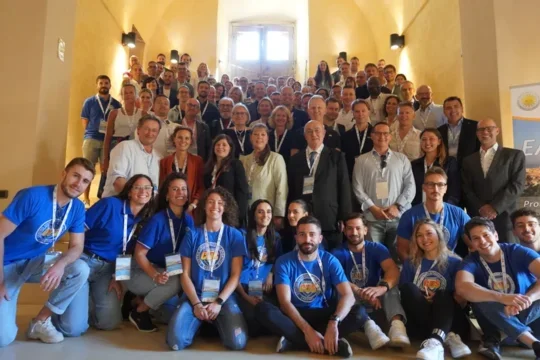
European Athlete as Student (EAS) - Dual career network held its annual Conference and General Assembly between October 2 and 4 at the Angioino-Aragonese Castle in Gaeta, Italy.
Hosted by the University of Cassino and Southern Lazio, the conference was held under the title “Promoting wellbeing in dual career”. The participants were welcomed by Cristina Cortis, Rector Delegate for Sport and President of the Organizing Committee, and Laura Capranica, President of EAS.
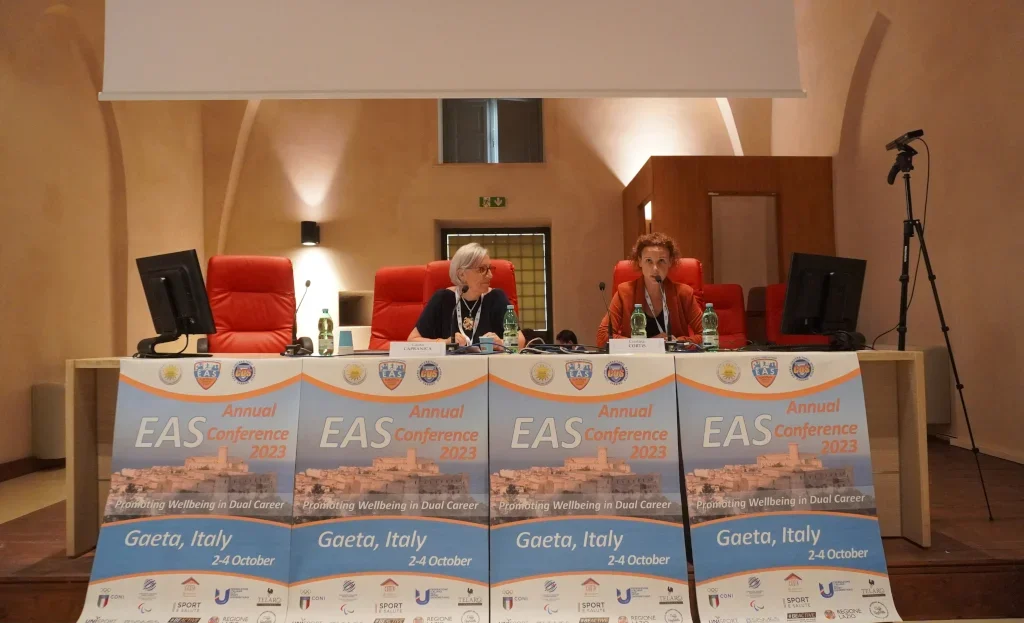
The first sessions were dedicated to EU Sport Policies and Opportunities, introduced by a video message of Tomasz Frankowski, Member of the European Parliament and Rapporteur of EU sports policy: Assessment and possible ways forward, who underlined that dual career is no longer considered for athletes only but for all the sportspersons struggling to combine their sport commitment with quality education and work careers. The online presentation of Izabela Pelczynska, European Education and Culture Executive Agency (EACEA), informed the audience regarding the European policies and funding opportunities for innovative projects in dual career. Andrea Carletti, Vice-Chair of the Governing Board of the Enlarged Partial Agreement on Sport (EPAS) at the Council of Europe and Member of the Sport Department at the Italian Presidency of Council of Ministers, illustrated the role of EPAS and its Consultative Committee of International organizations in supporting the advancement of the sport culture and dialogue, and highlighted the recent approval of the Italian Parliament to include sports in the article 33 of the Italian Constitution, which is dedicated to education and science. The recent celebration of the World Fair Play Day and the introduction of the 365-day calendar of the European Fair Play Movement (EFPM) were presented by Ruggero Alcanterini, President of the Italian Fair Play Committee, who invited the participants to attend the next EFPM conference “Fair Play and Racism” to be held in November in Baku, Azerbaijan and online.
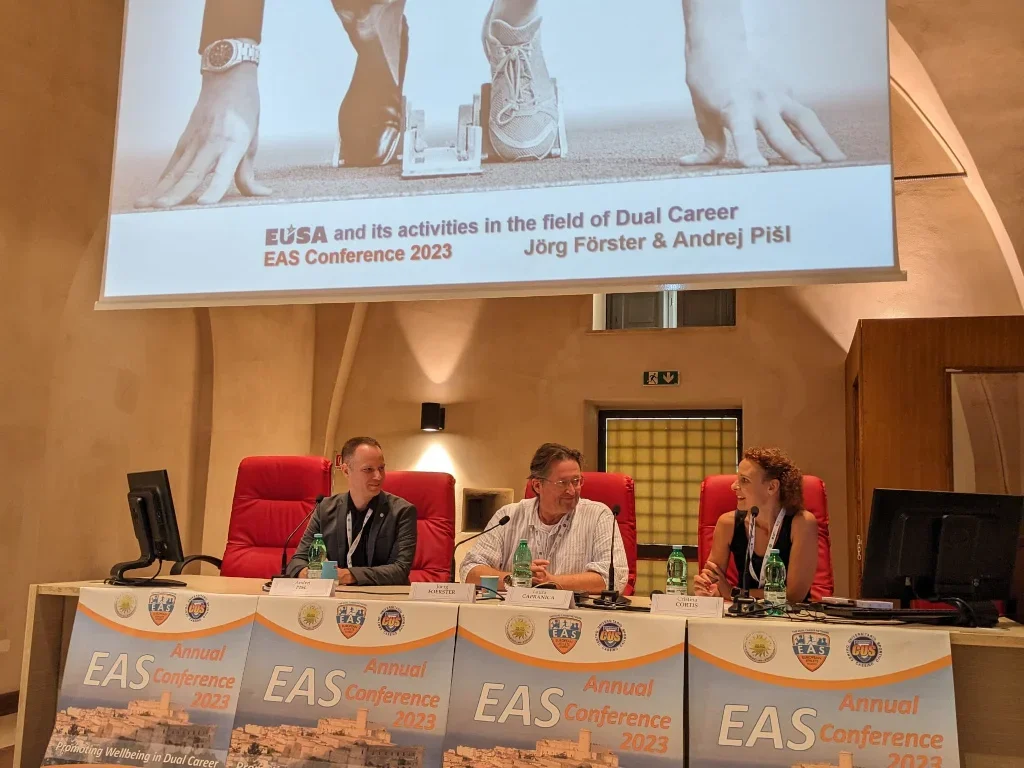
The dual career activities of major International and European sports associations were illustrated by William Thompson from the International University Sports Federation – FISU who introduced the FISU DC Toolkit to facilitate the development of dual career globally; while Joerg Foerster Andrej Pisl from the European University Sport Association – EUSA reported on the actual sports activities at European level and the current involvement with EAS in EU-funded dual career projects BRAVA-DC (2020-2023) and the DiscoverU to be started soon. The session concluded by Linda Rombola from European Non-Governmental Sports Organisation – ENGSO, who presented the Capacity Building project Sports as Values and aiming to foster positive values and enhancing grassroots sports in Western Balkan countries, respectively.
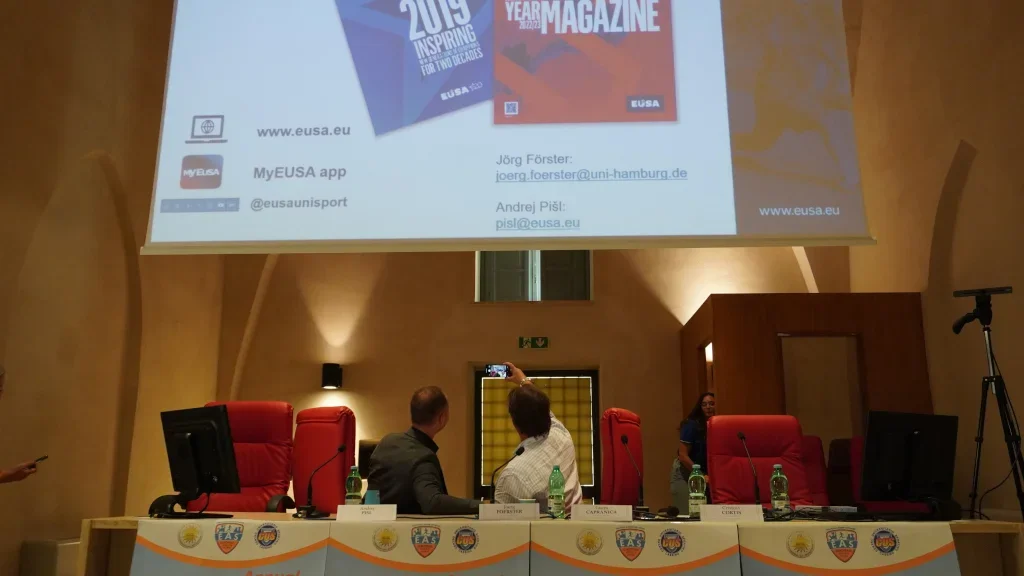
A session then followed dedicated to the development of Italian DC policies, including the recent publication of the National DC Guidelines. Stefania Orru from the Italian Society of Movement and Sport Sciences – SISMES acknowledged the advances of research in the dual career area. Walter Borghino from the International Military Sport Council and Italian Defence General Staff, illustrated the relevant role of the military sector in supporting sports by providing opportunities of dual career at the workplace. Antonio Tessitore, President of the European Network of Sport Education – ENSE and President of the Bachelor Degree in Sports Sciences at the University of Rome Foro Italico, underlined the relevant role of quality education in sports also for elite coaches through the dedicated dual career educational programmes at the Foro Italico University. Marco Arpino from the Italian National Olympic Committee – CONI presented the Italian DC Guidelines developed in cooperation with the Network of Italian Universities interested in sports – UNISPORT Italia, the Italian University Sport Federation – FederCUSI, and the Italian National Paralympic Committee – CIP, which represent a good practice and a further opportunity to develop dual career policies in Italy. The role of dual career in Italy was further offered by Carlo Molfetta, Gold Olympic Medallist in Taekwondo at the 2012 London Games and Member of the Italian National Athletes’ Commission at CONI, who highlighted the crucial role of the athletes’ representativeness in sports bodies and the support he received from the Italian Taekwondo Federation – FITA for his dual career in education and work, which allowed him to graduate in higher education while working as a sports manager.
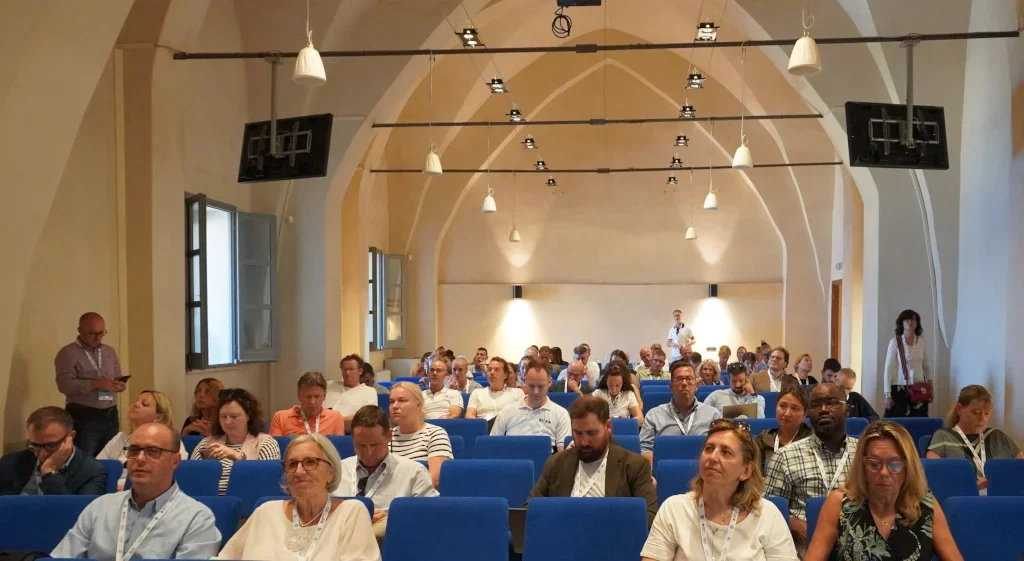
The dedicated session to the 2023 Bengt Nybelius Scholarship was awarded to Alejandro Leiva-Arcas from the Catholic University San Antonio – UCAM for his paper entitled “Perceived Barriers for Student-Athletes with Disabilities: A Comparative Analysis according to the State’s Dual Career Support Policy System”, which offered novel findings from scientific data collected in five countries (Spain, Portugal, Italy, Romania and Ireland) during the recently completed EU Erasmus+ Sport project Para-limits aiming to adapt the dual career mentoring model to high-level athletes with disabilities.
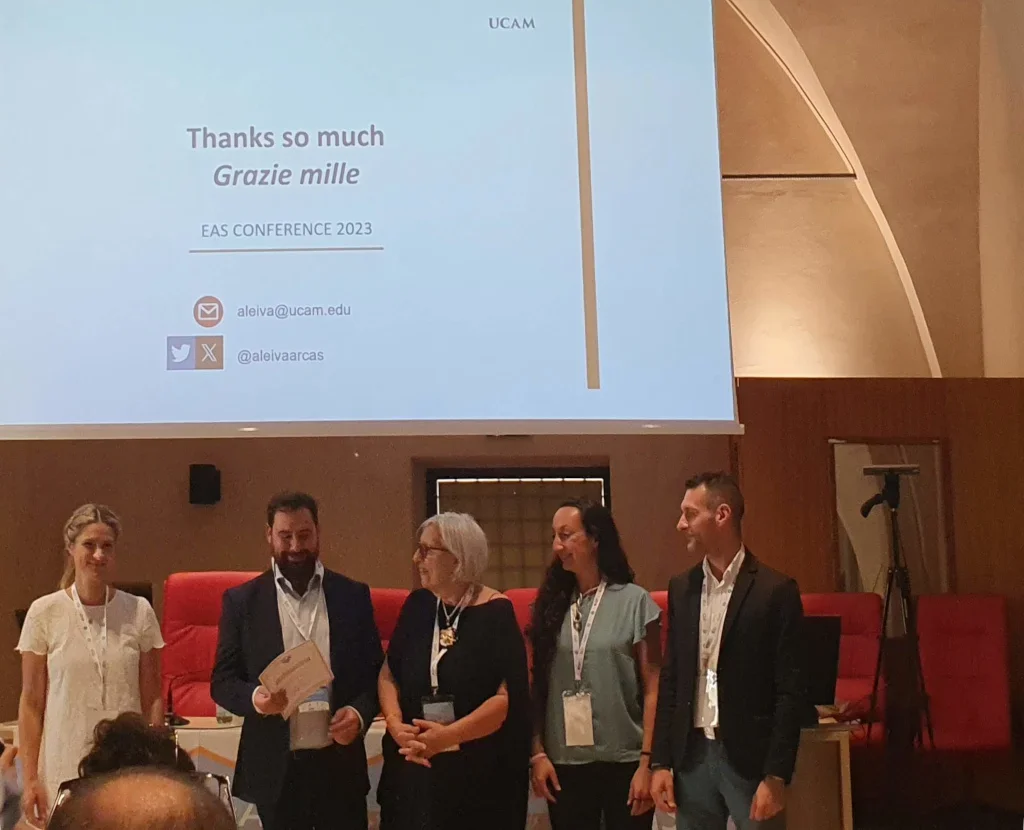
The last session of the first day was dedicated to the significant evolution of dual career at seven Italian Universities. Giuliana Gobbi illustrated the special dual career financial support at the University of Parma, Alberto Rainoldi reported on the dual-career programme and the healthy campus at the University of Turin, Sergio Bellantonio highlighted the positive aspects of a blended learning for dual career students’ wellbeing at the University of Foggia, Stefano Bastianon from the University of Bergamo proposed an interesting legal approach for the protection of student-athletes taking into consideration the relevance of EU law, Raymond Siebetcheu introduced a plurilingual dual career education programme at the University for Foreigners of Siena in light of the massive phenomenon of migration, Ida Cariati offered the approach to balanced lifestyles of student-athletes at the University of Rome Tor Vergata, Davide Malacrida presented the state-of-the-art and future challenges for improvements of the dual career programme at the Catholic University of Sacred Heart – UCSC, and Francesca Vitali explained the peer-tutoring organized at the University of Verona in cooperation with the University Sport Centre – CUS and the Centre for Educational Rights – ESU to facilitate the organization of individualized study programmes of athletes.
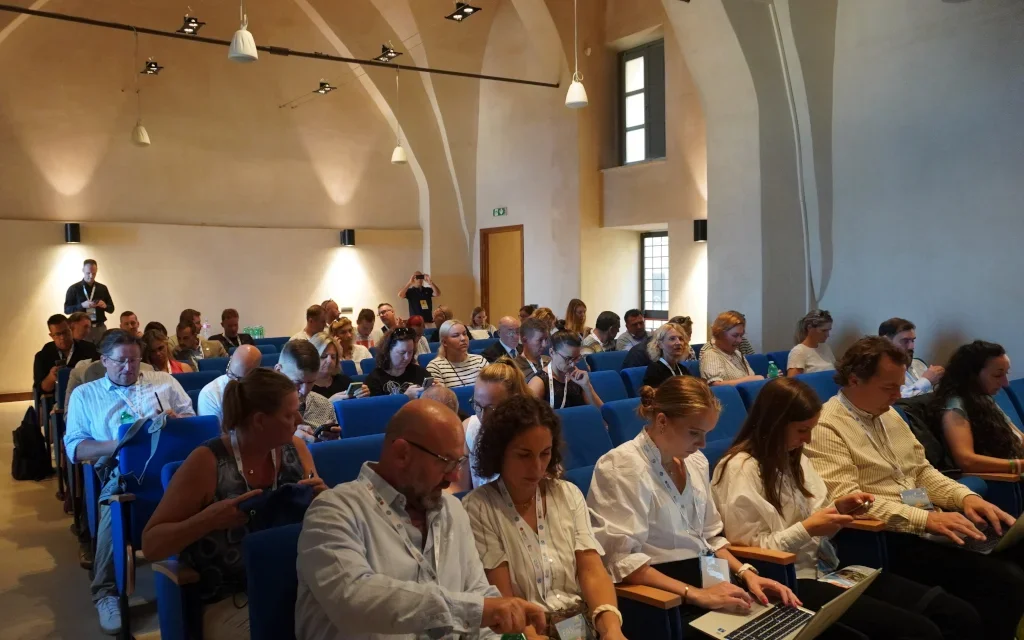
On the second day, Juan-Alfonso Garcia-Roca introduced the session focused on the promotion of wellbeing in dual career through a holistic approach followed by lectures on the potential benefits of quality sleeping strategies for recovery of elite women volleyball student-athletes by Luca Rossini from the University of Cassino and Southern Lazio, the role of empowerment for personal development and wellbeing of athletes by Inga Staskeviciute-Butiene from the Lithuanian Sports University, the outcomes of workshops and panels with athletes and entrepreneurs by Romana Caput-Jogunica from the University of Zagreb and Croatian Olympic Committee, and the recent dual career programme at the Catholic University of Valencia by Jorge Terraces.
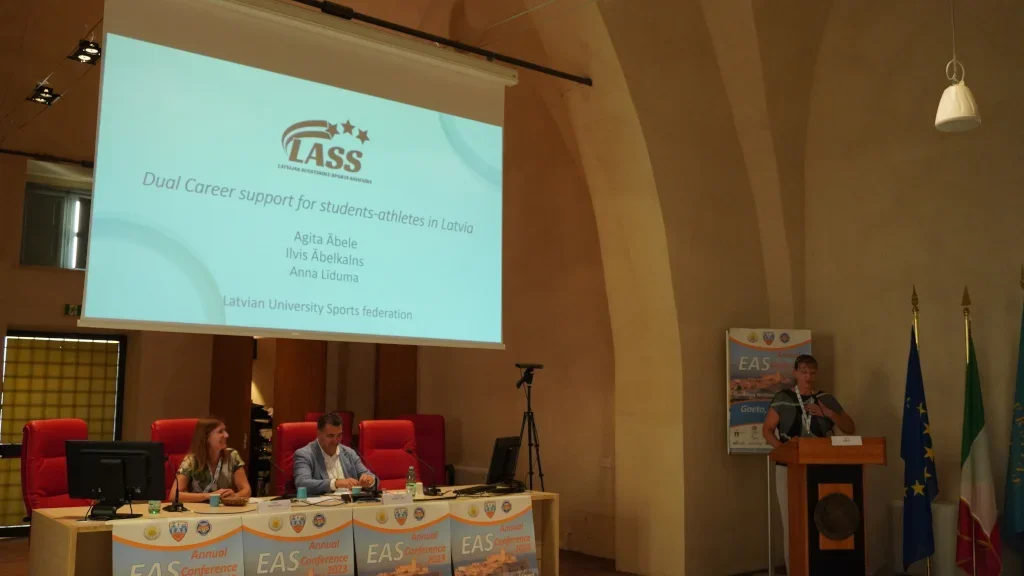
Seven presentations highlighted Dual Career Best Practices and Research. Pertii Huotari from the University of Jyvaskyla underlined the relevant role of parents and friends for dual career at high school level, Piotr Rodak from the Academy of Physical Education in Katowice illustrated the individual plan and study programmes at his university, Agita Abele from the Latvian Academy of Sports Education presented the dual career support for student-athletes in Latvia, Pierluigi Diotaiuti from the University of Cassino and Southern Lazio proposed a monitoring tool for the development of a friendly dual career environment, Aku Nikander from the University of Jyvaskyla highlighted the role of developmental evaluation in enhancing dual career environments, Irena Valantine from the Lithuanian Sports University posed entrepreneurship and self-employment career options for elite athletes, Attilio Sacripanti from the International Judo Academy Foundation – IJF addressed the outcomes of the Erasmus+ Sport project EDJCO on an online educational programme for facilitating the continuous education of employee-judo coaches, and Juan Alfonso Garcia-Roca from UCAM explained the aims and progression of the Erasmus+ Sport Project S4SC Sport for Social Change.
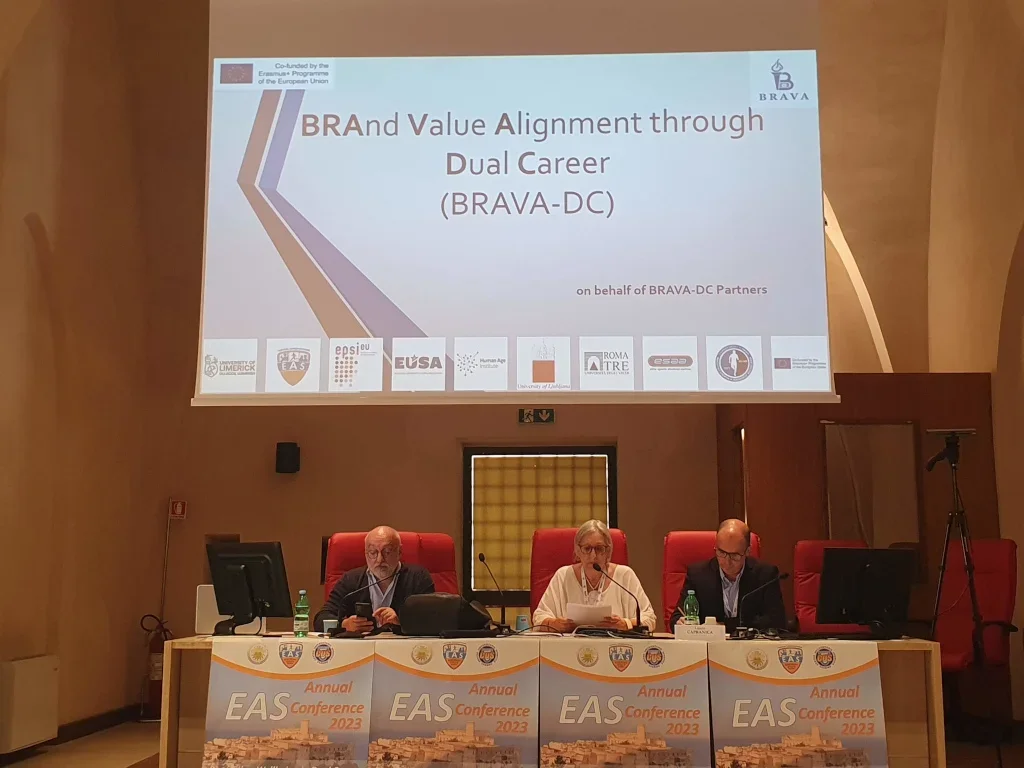
At the end of the morning and afternoon sessions of the second day, the participants contributed to the EAS workshops of the Erasmus+ Sport project Brand Values Alignment through Dual Career (BRAVA-DC), defining the clarity of the 16 guidelines developed for enhancing dual career at the workplace, and of the TALENT project, asking participants’ opinions on the most relevant factors for identifying and supporting talents.
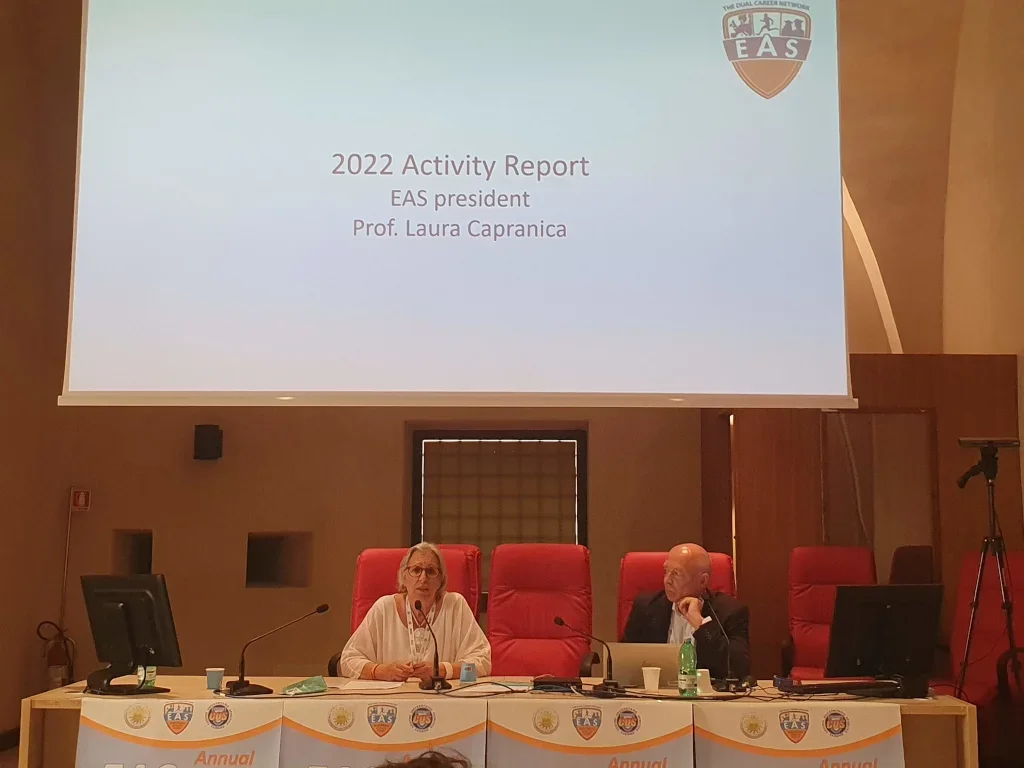
Ole Keldorf, EAS General Secretary, chaired the 2023 Annual General Assembly during which the activities carried out in this year have been summarized by EAS President Laura Capranica and unanimously approved, including the Annual Conference, online cafés, newletters, the participation in and application for European Erasmus+ Sport Collaborative Partnerships (BRAVA-DC, Compath, DC Mentor, DiscoverU, ElCAMP, Find Me, Para-limits, Smart Start and Talent) and the Capacity Building “Sports as Values”, the cooperation with European institutions, academies, sports bodies, and policy makers, the signature of a Memorandum of Understanding with the European Fair Play Movement, and two Memorandum of Understanding to be signed with SISMES and ENSE. The outcomes of the participated survey on EAS Members’, Policy Makers’, and Stakeholders’ opinions regarding the Network vision and activities have been reported, which were precious to define the EAS Strategic Plan for the 2023-2026 quadrennium confirming the previous aims and activities extended also to talents in performing arts.
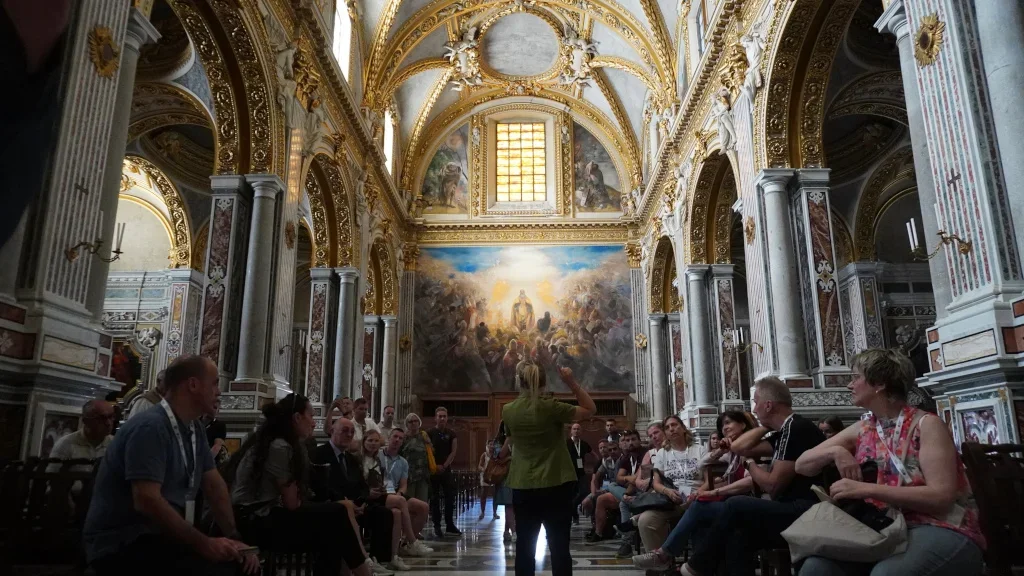
It was announced that the 2024 EAS Conference will be held in Katowice (Poland), and the proposals for the 2026 Conference in Oulu (Finland) and 2027 Conference in Croatia, with an open call for the 2025 Conference. EAS Treasurer Mojca Doupona presented the 2022 Financial report, also unanimously approved. At the end of the General Assembly, the EAS members and stakeholders presented their appreciation to the Executive Board for its dedication to the dual career family and Andrej Pisl from EUSA announced that the President of EAS was awarded the “EUSA Medal of Appreciation” for her long-term commitment in EAS.
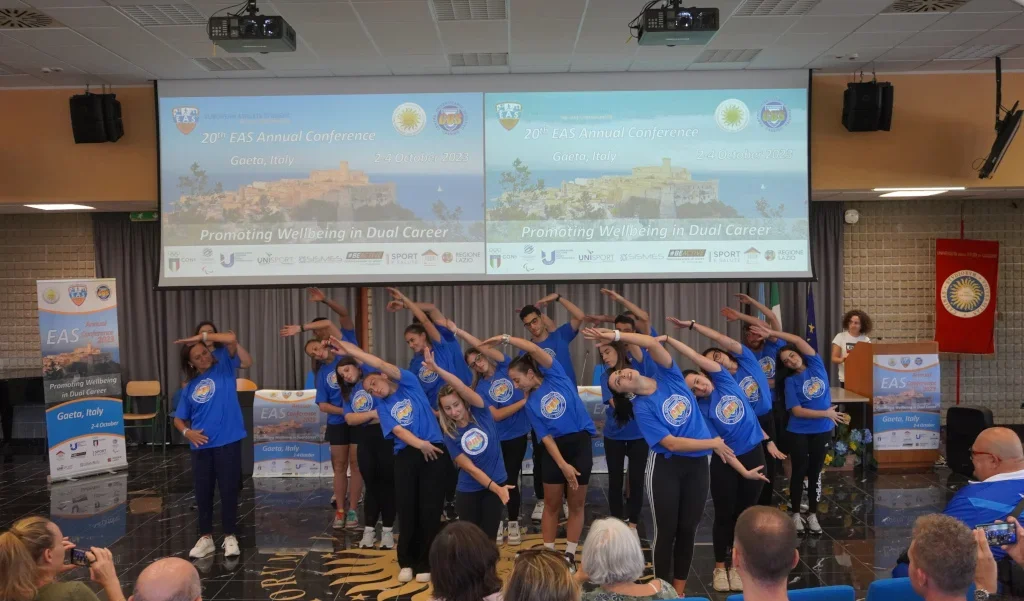
The third day of the event included a tour to the Montecassino Abbey and the closing ceremony at the University of Cassino and Southern Lazio, with the participation of the President of CUS, and the Paralympic Champion and Lieutenant Colonel of the Italian Army Giuseppe Campoccio, who qualified for Paris 2024.
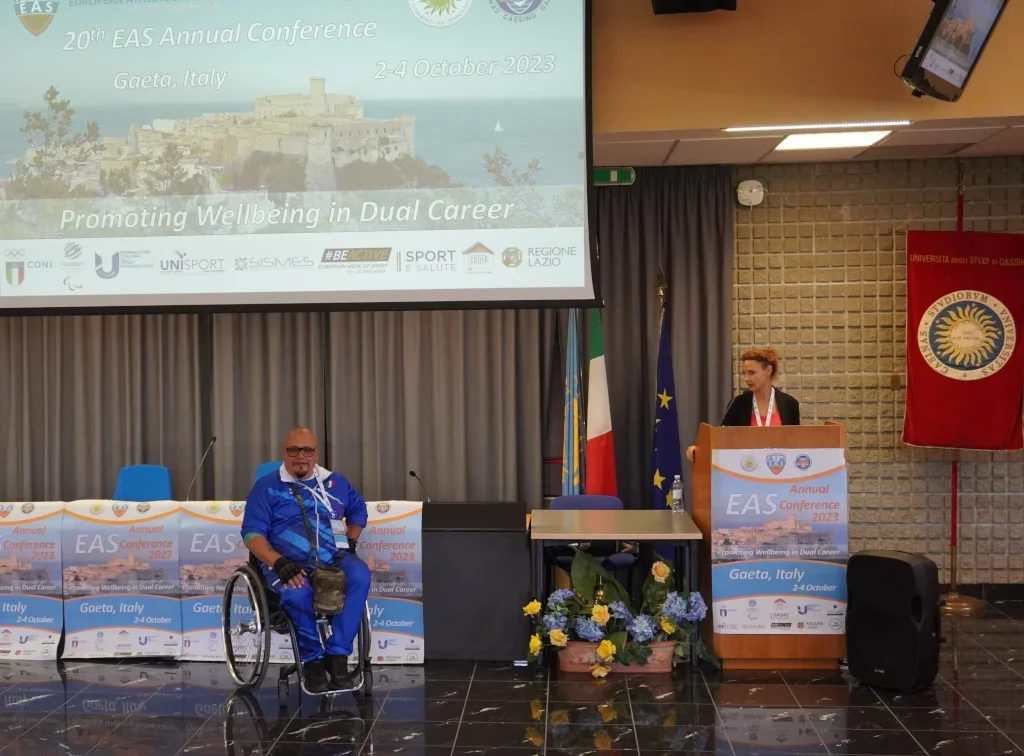
During the conference breaks, lunches, dinners, the visit to Gaeta and its Serapo beach, and the final tour the participants had plenty of opportunities to interact and envisage new innovative projects to be submitted during the next Call for Erasmus+ Sport Partnerships and Capacity Building projects.
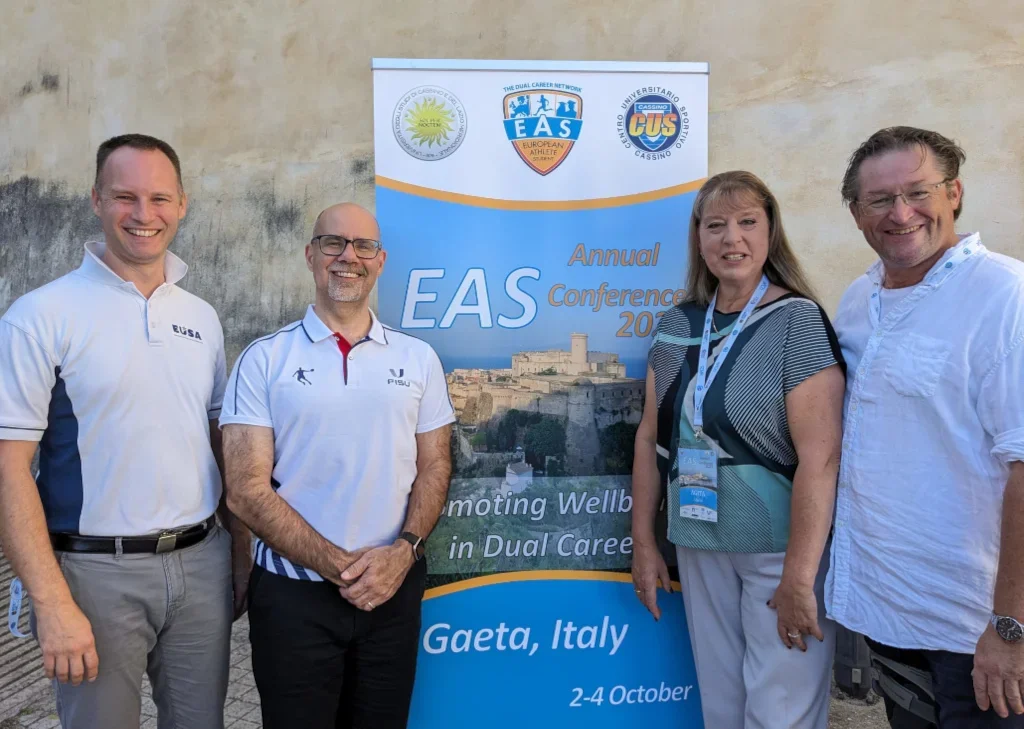
European University Sports Associateion (EUSA) and its Institute were represented at the event by its Communications and Projects Manager Andrej Pisl; while also EUSA Vice-President Joerg Foerster, EUSA Executive Committee member Agita Abele and member of the EUSA Education Commission Romana Caput-Jogunica attended the event as well.
For more information, please see http://dualcareer.eu and https://sites.google.com/unicas.it/easconference2023/
